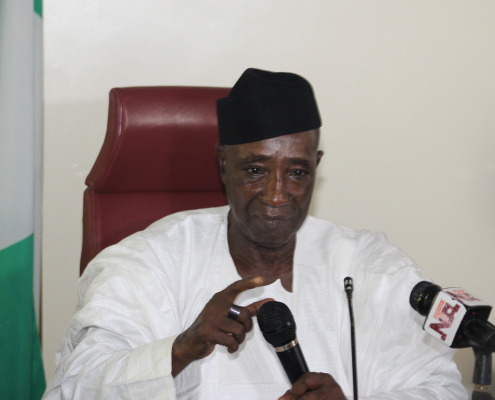FG to hands off fertiliser
The Minister of Agriculture and Rural Development, Alhaji Muhammad Sabo Nanono, said the federal government would hands off the issue of fertiliser to allow a private sector-driven system control it while it plays a regulatory role. In an interview with Daily Trust, the minister said the issue of fertiliser had remained contentious in the country, […]

Minister of Agriculture, Alhaji Sabo Nanono.
The Minister of Agriculture and Rural Development, Alhaji Muhammad Sabo Nanono, said the federal government would hands off the issue of fertiliser to allow a private sector-driven system control it while it plays a regulatory role.
In an interview with Daily Trust, the minister said the issue of fertiliser had remained contentious in the country, adding that in the last 30 to 40 years, the history of fertiliser production and distribution was a disaster driven by cartels.
The minister said the country faced a lot of problems with regards to fertiliser ‘‘which in the first place was not enough largely due to COVID-19, shortage of raw materials and activities of cartels around the raw materials’’.
He explained that, “My position as a Minister of Agriculture now is that government should get out of the fertiliser space. Our role should be quality control, price, delivery and availability. This should be the only role of government. Why, because we now have over 32 blending plants in this country, about five to six more are coming.
“We are producing our own Uriah; even exporting. Indorama is now expanded from 800,000 tonnes to two to three million metric tonnes per annum. Notore is producing, Dangote is rolling out three million tonnes of Uriah per annum. It is also going to have NPK line of between 250,000 and 400,000 metric tonnes. We have more coming up in Osun and Jigawa. So why should government bother itself with the issue of fertiliser? If you bring it back, it will be the same issue.”
The minister further said government did not refuse to renew its agreement with Morocco for raw materials, but wanted to see how the country could develop its phosphate industry, which according to him “we have in abundance in Sokoto and Ogun states.”
He applauded Morocco for its decision to give the country almost 25 to 40 per cent discount on the raw material.
